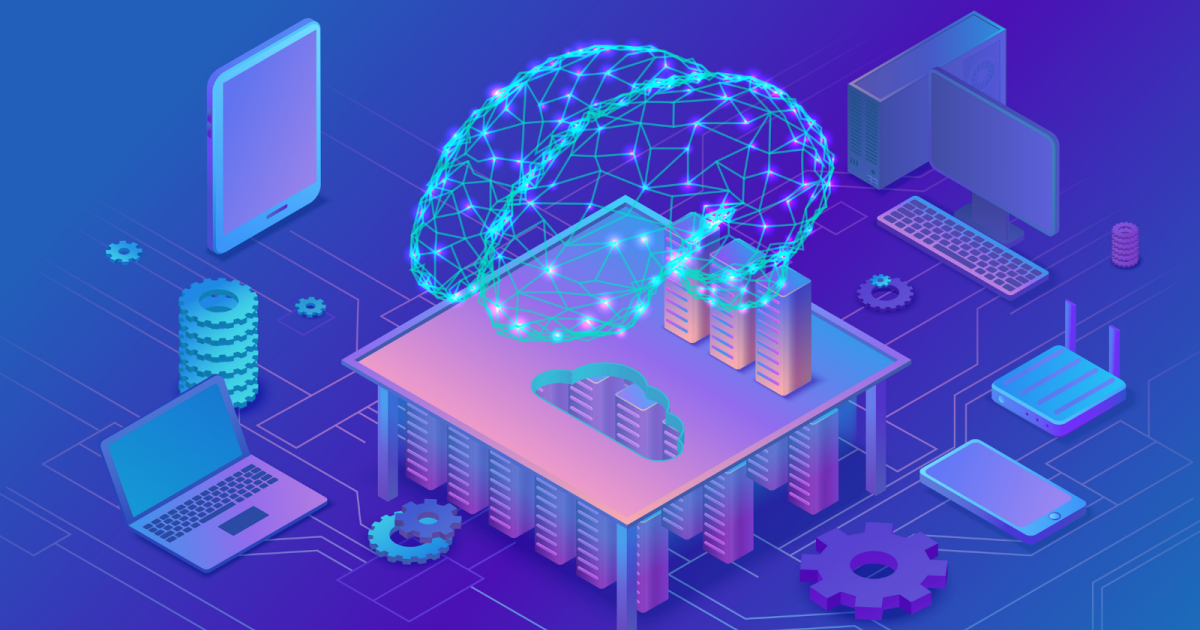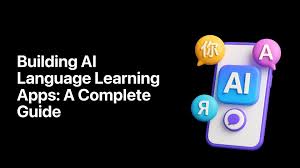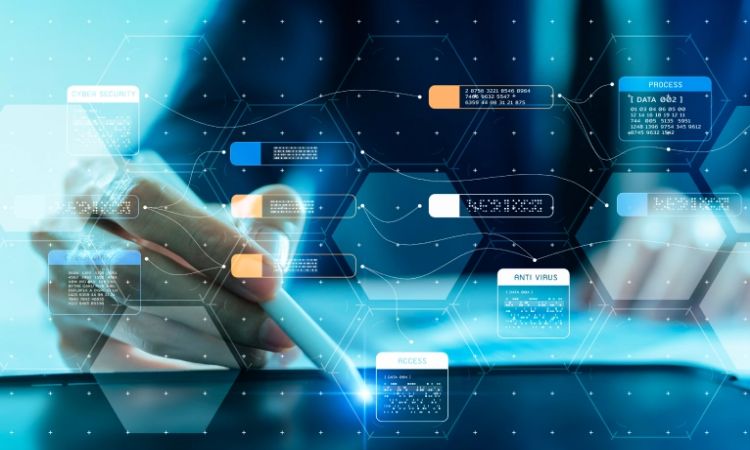
Artificial intelligence
As Artificial Intelligence (AI) becomes more sophisticated, it plays an increasingly important role in marketing. AI can help marketers to target their customers more accurately and to create more effective marketing campaigns.
In addition, Artificial Intelligence can also be used to analyze customer data and track the effectiveness of marketing campaigns.
As a result, businesses that use AI for marketing will be at a significant advantage over those that do not. In this article, we’ll look at how businesses can use AI for marketing and the potential benefits that it could bring.
What is AI Intelligence:
AI intelligence is a technology that enables machines to act and think like humans, using complex algorithms and machine learning. AI can be used in many areas, including marketing. AI can help businesses to analyze customer data, track the effectiveness of their campaigns, and target the right customers at the right time.
13 ways in which AI Intelligence can help with marketing:
In the following ways, AI intelligence can help businesses with marketing:
Using AI For Targeting:
One of the ways that businesses can use AI for marketing is by using it to target their customers more effectively. It could involve using AI to analyze customer data and identify potential customers that are likely to be interested in a particular product or service. Once these potential customers have been identified, businesses can tailor their marketing messages.
Creating Personalized Content:
Businesses can also use AI to create personalized content for their customers. It could involve analyzing customer data and creating content tailored to the customer’s needs. For example, a business may use AI to identify which types of content are most likely to be successful with a particular customer. It can help businesses to create more effective marketing campaigns and improve their ROI.
Analyzing Campaign Performance:
AI can also be used by businesses to analyze the performance of their campaigns. By analyzing customer data, AI can identify which parts of a campaign are working and which are not. It can help businesses to adjust their campaigns to maximize the effectiveness of their marketing efforts.
Optimising Messaging:
AI can also be used by businesses to optimize their messaging for customers. By analyzing customer data, AI can identify which messages are most likely to be successful with a particular customer and can help businesses craft more effective marketing messages.
Using AI for A/B Testing:
Businesses can also use AI to conduct A/B testing of their campaigns. It could involve using AI to analyze the results of different campaign versions and identify which is performing best with customers. It can help businesses to determine what works and what doesn’t so that they can adjust their campaigns accordingly.
Creating Automated Campaigns:
AI can be used by businesses to create automated campaigns. It could involve using AI to create campaigns tailored to the customer’s needs. For example, a business may use AI to identify which types of content are most likely to be successful with a particular customer and then automatically send out those messages at the right time.
Predicting Customer Behaviour:
AI can also be used by businesses to predict customer behavior. By analyzing customer data, AI can identify patterns in customer behavior that can help businesses anticipate how customers will react to specific marketing messages or offers. Businesses can then use this information to craft more effective marketing campaigns.
Optimizing Media spending:
AI can be used to optimize media spending. By analyzing customer data, AI can identify which media types are most likely to be successful with a particular customer and then adjust the budget allocated to those channels accordingly. It can help businesses ensure that their marketing budget is being spent in the most effective way possible.
Optimizing Ad Placement:
AI can also be used to optimize ad placement. By analyzing customer data, AI can identify which types of ads are most likely to be successful with a particular customer and then adjust the placement accordingly. This can help businesses ensure that their ads reach the right people in the right way.
Generating Insights:
AI can be used to generate insights into customer behavior. By analyzing customer data, AI can identify trends and patterns in customer behavior that can be used to inform marketing decisions. Businesses can then use this information to craft more effective marketing strategies and better serve their customers.
Automating Decision-Making:
AI can also be used to automate decision-making. By using machine learning algorithms and analyzing customer data, AI can decide which content or offers are most likely to be successful with a particular customer. This information can then be used by businesses to create more effective marketing campaigns and maximize the effectiveness of their efforts. By leveraging the power of AI, businesses can streamline their marketing strategies and create more effective campaigns that drive better results.
Personalizing Experiences:
AI can also be used to personalize customer experiences. By analyzing customer data, AI can identify which content or offers are most likely to be successful with a particular customer and then create personalized messages or experiences for them. It can help businesses create meaningful connections with their customers and ensure they provide the most relevant content or offers.
Smart Customer Engagement:
One of the most helpful things for me is that AI algorithms can actually
identify which customers are most likely to disengage and leave you for a
competitor. AI-powered tools can help gather data and build a predictive
model which can then be tested on real customers! Such information can
really help you determine which stage of disengagement the customer is in
at the moment.
Courtesy of Alex, the founder, and CEO of PixelChefs
Benefits of using AI in marketing:
Let’s discuss some benefits of using AI in marketing:
1. Improved Efficiency:
By using AI, businesses can reduce the time and resources required to conduct marketing tasks such as A/B testing or creating campaigns. It can help them save money on these activities and focus their efforts on more critical aspects of their business.
2. Better Insights:
AI can provide businesses with insights into customer behavior that can be used to make more informed marketing decisions. This can help them create better campaigns and ensure they are targeting the right customers in the right way.
3. Increased Engagement:
AI-powered personalization can also help businesses increase customer engagement. By creating personalized messages or experiences for customers, businesses can create more meaningful connections with their customers and increase the likelihood that they will take action.
Mayun, SMM at Premium decorations says, “AI-powered tools like ChatBots and Virtual Assistants can provide instant and personalized customer service, answering questions and assisting customers in real-time. This can be especially useful for businesses with a large customer base, as it can help to streamline customer interactions and improve overall customer satisfaction.”
4. Improved ROI:
By optimizing media spending, ad placement, and customer experiences, businesses can maximize the return on investment of their marketing efforts. This can help them get the most out of their budget and ensure that every dollar is being used in the most effective way possible.
5. Greater Scalability:
AI-based marketing can also help businesses scale up their operations more quickly and easily. Companies can expand their reach without adding additional staff or resources by automating tasks such as decision-making. It can help them cost-effectively grow their business.
6. Enhanced customer experience:
AI-driven personalization can help businesses create meaningful connections with their customers. By creating personalized messages or experiences for customers, businesses can ensure they are providing the most relevant content or offers to each customer. This can help them build stronger relationships and provide better customer service.
7. Improved customer retention:
AI-driven personalization can also help businesses retain customers for longer. By creating personalized messages or experiences for customers, businesses can increase the likelihood of customers staying engaged with their brand and returning to purchase again. It can help them build stronger relationships and provide better customer service.
8. Better targeting:
AI can also help businesses target customers and ensure their marketing messages reach the right people. By analyzing customer data, AI can identify which content or offers are most likely to be successful with a particular customer and then create targeted campaigns for them. It can help businesses generate more leads, increase conversions, and drive better results.
9. Automation:
AI can also help businesses automate complex, time-consuming marketing tasks such as creating campaigns or analyzing customer data. It can free up valuable resources and allow businesses to focus on more critical aspects.
Drawbacks of using AI in marketing
Potential drawbacks and considerations of AI to keep in mind while using it in marketing are discussed below:
1. Cost:
AI-driven marketing initiatives can be costly, requiring specialized hardware, software, and personnel. So, businesses should ensure they have the resources and budget to implement AI-driven marketing before taking the plunge. If you have just started your business, investing in AI-driven marketing strategies may be challenging.
2. Privacy:
AI-driven marketing initiatives require collecting and analyzing customer data, which raises privacy concerns. Businesses should ensure they collect and use data responsibly and comply with relevant regulations.
3. Accuracy:
AI-driven marketing initiatives can be inaccurate if the data used to power their needs are to be completed or corrected. Businesses should ensure they have clean and accurate data before relying on AI-driven marketing strategies.
4. Legality:
AI-driven marketing initiatives may not comply with relevant regulations, so businesses should follow applicable laws before using them.
5. Timeliness:
AI-driven marketing initiatives can take time, so businesses should be aware that results may only appear after a period of time. It can make it difficult to measure the impact of these strategies in the short term.
6. Risk of Automation:
AI-driven marketing initiatives can be automated, which could lead to potential errors. Businesses should always have a human review and approve any AI-driven decisions before they are implemented to minimize risk.
7. Lack of Flexibility:
AI-driven marketing initiatives are often limited in their flexibility and may only be suitable for some types of businesses. Businesses should consider the type of initiative they want to implement before investing in AI-driven marketing strategies.
8. Security:
AI-driven marketing initiatives require data to be stored and kept secure. Businesses should ensure their systems are regularly monitored for any potential security threats and take measures such as encryption and regular patching to protect their data.
9. Unforeseen Circumstances:
AI-driven marketing initiatives can be unpredictable and may only sometimes produce the desired results. Businesses should be prepared to adjust their strategies to ensure successful campaigns.
10. Potential Bias:
AI-driven marketing initiatives can be biased if the data used to power them is incomplete or incorrect. Businesses should ensure their data is unbiased and represents all customers equally to produce accurate results.
Zhanna Sedrakyan, Director of Digital Marketing Operations at Contact Consumers seconded this by explaining, “One potential concern is the potential for AI algorithms to perpetuate biases or stereotypes, especially if the data used to train the algorithms is not diverse or representative. It is also important for businesses to be transparent about their use of AI and to ensure that they are collecting and using customer data in a responsible and ethical manner.”
Future of AI Intelligence in Marketing:
The role of AI in marketing is still growing, and it’s likely to become even more prominent shortly. As businesses learn how to use AI for marketing, they can leverage its power to drive better campaign results.
Additionally, as technology advances, AI-driven marketing initiatives will become even more powerful and capable of producing better results. Businesses should continue to monitor the evolution of AI-driven marketing to stay ahead of their competition.
Overall, the use of artificial intelligence in marketing is a powerful tool that can be used to improve and optimize campaigns. However, businesses need to be aware of the risks and challenges associated with AI-driven initiatives before investing in them.
The potential of artificial intelligence in marketing is immense, and its use will only increase soon. Businesses should take steps to ensure they are taking advantage of this technology and leveraging it for their benefit. With careful planning, businesses can ensure that their AI-driven marketing initiatives are successful and help them reach their goals.
Conclusion:
By understanding the potential advantages and drawbacks of using AI in marketing, businesses can make more informed decisions and ensure their campaigns are successful.
AI-driven marketing initiatives can benefit businesses, enabling more personalized and targeted customer experiences.
However, it’s essential to consider the potential drawbacks and take steps to address them before investing in AI-driven marketing strategies. By taking the time to understand how artificial intelligence works appropriately, businesses can use it to their advantage and create more effective marketing campaigns.
Write and Win: Participate in Creative writing Contest & International Essay Contest and win fabulous prizes.


